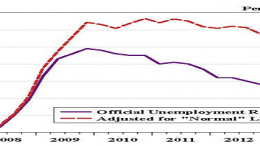One step forward, two steps backward for inflation: data starts to look more erratic after first big downward adjustments in late 2022
Santander Corporate & Investment | There are no divisions here, inflation data are undoubtedly starting to look more erratic after the first big downward adjustments at the end of 2022, falls that raised hopes of a pivotal moment for central banks and explained a large part of the unprecedented January rally in the markets. Base effects will be the main ally for much of 2023, but our economists believe that…







